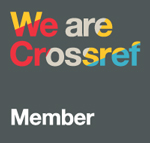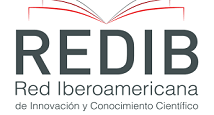School organization in teaching performance in Educational Institution of Ayacucho
DOI:
https://doi.org/10.51440/unsch.revistaeducacion.2024.23.488Keywords:
School organization, teacher performance, learningAbstract
The aim of this research was to demonstrate the influence of school organization on campus teaching performance. With respect to the methodology, the research is experimental pre experimental design, sample is not probabilistic composed of 28 teachers from the three levels of the Equalization Program and Academic Reinforcement Holiday, "where the pre test and post test with record of observation of teaching performance was applied. To determine the normality of the data the statistician of the Shapiro-Wilk test at 95% confidence level and sample Wilcoxon statistic related to the process of verification of the hypothesis was used. In analyzing the results, it was determined that the calculated value of Z is -4.786 with the level of bilateral asymptotic significance: ρ = 0.000, a value which is lower than the critical region α = 0.05, then the null hypothesis is rejected and accepts the alternate; with a significance level of 5% and a confidence level of 95%. There is better teacher performance level after the development of the school organization. In conclusion, school organization affects educational performance Plantings Application "Guaman Poma de Ayala", Ayacucho (ρ = 0.000 <0.05, Z = -4.786).
Downloads
References
Barboza, M. E. (1978). Algunas teorías pedagógicas que le han dado sustento a la metodología de enseñanza-aprendizaje. Textos Pedagógicos. Universidad de Costa Rica Facultad de Ciencias Sociales Escuela de Trabajo Social.
Caro, G. (1991). Las Escuelas de Estudio y Trabajo en Coeducación. Editora Magisterial. Segunda Edición. Lima-Perú.
Cuenca, R. Montero, C., Ames, P. y Rojas, V. (2018). Hacia una propuesta de criterios de buen desempeño docente. Concejo Nacional de Educación. Lima-Perú. Editorial: Cecosami.
Etzioni, A. (s.f.). Organizaciones modernas.
https://es.scribd.com/doc/263176846/Amitai-Etzioni-Organizaciones-Modernas-Caps-1-a-5-Resumen.
Pfiffner, J. M., Sherwood, F. P. (1968). Organización Administrativa. Editorial Herrero Hnos Sucesores S. A. México.
Fuentes, O., Elejalde, A. O. y Suárez L. M. (s.f.). Organización escolar. Material básico. Instituto Pedagógico Latinoamericano y Caribeño. http://www.cubaeduca.cu/medias/h_escolar/info/material-base-en-desarrollo.pdf.
Guilar, M. E. (2009). Las ideas pedagógicas de Bruner.
Jiménez (s.f.). Relación entre el desempeño profesional del docente y las competencias educativas adquiridas por el alumnado de la Universidad Marista de Guadalajara [Tesis doctoral], Oviedo-México.
Martínez Chairez, G.I., Guevara Araiza, A. y Valles-Ornelas, M.M. (2016). Desempeño docente y la calidad educativa. https://www.redalyc.org/pdf/461/46148194007.pdf
Ministerio de Educación. (2013). Marco de Buen Desempeño Docente. Lima: MED.
Monrroy, M. (2012). Desempeño docente y rendimiento académico en matemática de los estudiantes de un colegio en Ventanilla-Callao. Tesis de Maestría.
Mooney, J. D. (1962). Principios de organización. Documentación Administrativa, (59). https://doi.org/10.24965/da.vi59.2022
Toscano, A. R. (2002). Organización, planificación y administración en Educación Inicial. Texto Universitario.
Downloads
Published
How to Cite
License
Copyright (c) 2024 Heber Yacca Poma

This work is licensed under a Creative Commons Attribution-NonCommercial 4.0 International License.





















